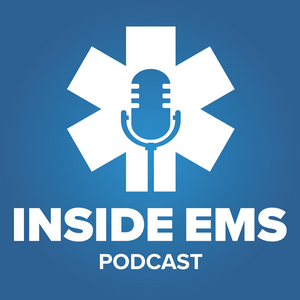Editor’s Note: This episode of Inside EMS is brought to you by ZOLL software and data solutions. Optimize EMS performance and outcomes at every stage of operations with interoperable solutions from dispatch, to patient care, QA/QI, billing and beyond. Visit zolldata.com to learn about the complete solution suite.
This episode of Inside EMS tackles a difficult question: When is it time to step away from the job? Hosts Chris Cebollero and Kelly Grayson trade hard-earned wisdom — from Kelly’s knee-rehab comic relief to serious talk about emotional burnout, wellness needs and timing.
The hosts also explore the psychology of identity — how being a paramedic or EMT isn’t just a job, it’s who you are. They unpack how to carry forward the best parts of that identity — calm under pressure, decisive action, compassion — into new roles if needed. This isn’t about quitting — it’s about owning your career before it owns you.
Whether it’s fewer shifts, a new role, a new service or a new direction altogether, the message is clear: protect your identity, protect your professionalism and make moves that keep you sharp for the long haul.
Quotable takeaways
“Burnout is gradual. It's not explosive, but you've got to be able to realize the emotional flattening that is happening.” — Chris Cebollero
“Our identity often becomes EMS. I tell people, to this day, ‘I'm a paramedic,’ and there's a lot that goes into that — and not just when you put the boots or the polo shirt on. It really becomes the core of who you are.” — Chris Cebollero
“The vast majority of us don't leave after one bad call. We wake up one day and realize we've been surviving instead of serving, and that's when the burnout epiphany really hits us hard.” — Kelly Grayson
Enjoying Inside EMS? Email
[email protected] to share feedback or suggest guests for a future episode.


